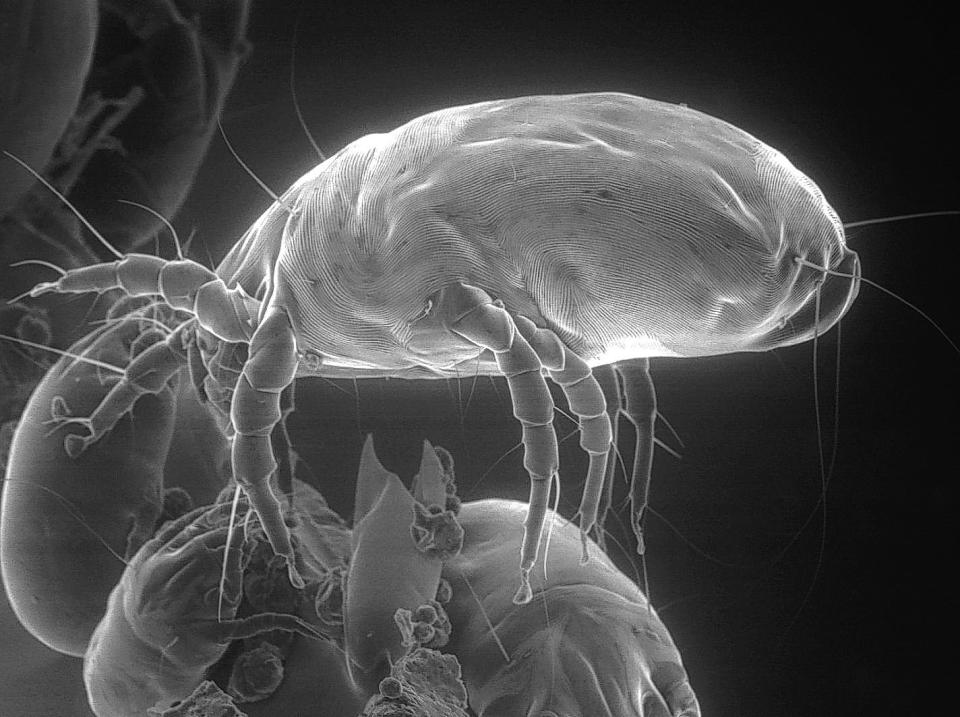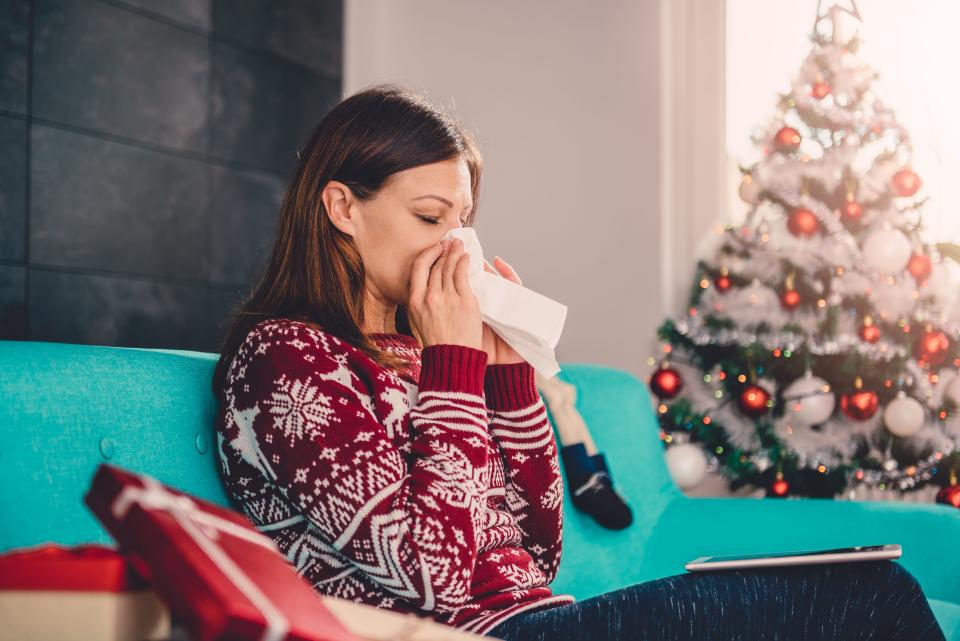Winter doesn't mean allergies disappear. Here's how your home can be a hotbed for allergens
Because they are mostly associated with spring and fall months, many people incorrectly assume that allergies die down or go away during the winter months because people spend much of their time indoors in their homes.
But your home can also be a hotbed for allergens, allergy and immunology experts say. In fact, homes can be ground zero for allergy triggers like mold, dust mites, pet dander, and other indoor allergens that can leave you with sneezing, coughing, a runny nose or burning eyes.
The Dispatch sat down with Dr. Kara Wada, a board-certified specialist in allergens. immunology and lifestyle medicine at the Ohio State University's Wexner Medical Center, to talk about the science of seasonal allergies, what winter allergy symptoms look like, the causes, and tips on prevention so that you're not miserable inside your home.
The science of allergies

While allergies can be uncomfortable and inconvenient, they do play a role in the body's immune system, Wada says.
"Allergies are the body's response to things that it's seeing in the outside world," Wada says. A person's inflammatory response can include itchy and swollen eyes, watery nose, congestion, and even asthma.
Once the body comes into contact with allergens, the body releases histamine, which is stored in white blood cells. Histamines act like "security guards," whose job is to expel the allergen that's made contact with your body, she says.
Allergens like pollen, dust, and mold are typically harmless, but your immune system overreacts. Wada says that is when you start to experience the all-too-familiar symptoms of sneezing, itching, runny nose, and red and puffy eyes.
Wada says common antihistamines available at pharmacies and other places can alleviate these conditions, such as Zyrtec, Claritin, and Allegra. The antihistamines in these products block your body's histamine from overreacting and stop allergy symptoms from being triggered.
It "keeps the horses in the barn," Wada says.
Winter allergy causes
As the winter months take hold and as the recent cold plunge has likely demonstrated, you'll find yourself spending more time inside your home. While you may think your allergy triggers are safe inside, allergens are afoot.
Pet dander

Pet dander from your furry, four-legged family members can trigger allergic reactions, and if you're liberal with where you allow your pets inside your home, those reactions can be worse, Wada says. The dander spreads easily, getting stuck on beds, carpets, and upholstery, making it nearly impossible to get away from.
Wada says that the best way to alleviate allergy symptoms from your pets is to limit the amount of time they spend in your bedroom and other busy areas and to vacuum regularly. Wipe down areas where your pet likes to lie down, and bathe your pet regularly.
Although you may think that adopting a hypoallergenic pet can be a solution, Wada says this is a myth. Even if your hypoallergenic pets don't have any fur, their skin still has proteins that can trigger allergies.
Dust mites

They're tiny, invisible to the naked eye. But not invisible to your skin or immune system.
Dust mites are microscopic critters that make their homes inside your bedding, furniture, carpets, and other soft and comfortable material. And as if them taking up space in your most comfortable items wasn't bad enough, they're also known to leave their droppings mixed up with dust, according to Wada.
These invisible invaders may seem impossible to evict from your home, but Wada says a simple routine of washing clothes in hot water and regularly vacuuming can keep these unwelcome guests out. Dr. Wada also suggests purchasing allergy mattress covers and other bedding protectors, so they don't make themselves comfortable on your pillows and blankets.
Mold
Depending on where you live, mold can be present in your home and trigger your allergies. Mold and mildew may be worse in the winter depending on humidity levels in your home.
Christmas trees can also carry mold spores. While they may lie dormant when outside in the cold, they become reactivated once they are brought inside your warm home, Wada says.
There are different steps you can take to tackle mold invasions in your home, Wada and other experts say:
Using a dehumidifier to reduce indoor humidity.
Purchase an air purifier to get rid of mold spores.
Quickly repair any plumbing leaks you find.
Use space heaters (but be careful about creating fire hazards).
Winter allergies or the common cold?

If you're either not used to having allergies or not used to getting sick, you may be unsure of whether you're experiencing a cold or allergy symptoms since the symptoms are similar.
Wada says that winter allergies, like other regular allergies, tend to be more persistent and chronic and don't usually bring on any new symptoms. Allergy symptoms are usually triggered immediately, while cold symptoms develop slowly and are milder at their onset.
Allergy symptoms also tend to last longer (more than two weeks), while common colds can last between seven and 10 days.
If you're still unsure, the best way to find out is to schedule an appointment with an allergist and get tested, experts say. The most common tests that allergists use is the skin test, where you're exposed to the potential allergen(s) to see what triggers an allergic reaction.
Fighting your winter allergies
Getting the upper hand on your allergies is kind of like protecting against a fire in your home — it's best to have a smoke detector and an extinguisher handy, Wada says. By this, she means that if you usually rely on allergy medications, start taking them before the allergies kick in — not after symptoms appear.
Wada recommends staying away from Benadryl due to the side effects. She says other medicine commonly found in drug stores like Zyrtec, Claritin, Allegra, and Flonase work just as well. In consultation with your allergist, other options may include allergy shots and immunotherapies.
To find out more about allergies and immunotherapy, check out Wada's podcast episode here.
@ShahidMeighan
smeighan@dispatch.com
This article originally appeared on The Columbus Dispatch: How to fight back against winter allergies. Your home can be a trigger

